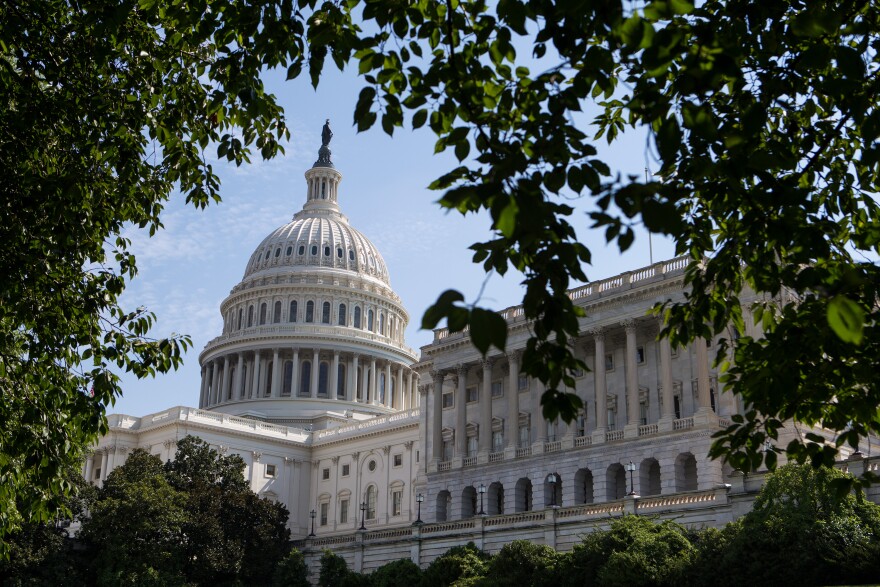The attack on the Capitol Wednesday left many Americans in disbelief. The insurrection arose in part from President Trump's refusal to accept defeat in the election.
Think host Krys Boyd talked with SMU presidential historian Sharron Conrad about how Trump continues to break from presidential norms even in his final days in office.
This transcript has been lightly edited for clarity.
Krys Boyd: Has any president before Donald Trump ever refused, at any time, to promise a peaceful transition of power?
Sharron Conrad: I don’t believe so, Krys. Every president, even in some of our closest presidential elections, in our most contentious elections, if you go back to the election of 1800, Thomas Jefferson called it the revolution of 1800 mostly because it was that first time that you have this transfer of power between parties and it was peaceful.
It demonstrated something really important and valuable and something that’s been upheld ever since. The fact that we have had a president who has refused to concede is not something that we’ve seen before and it’s quite frankly shocking.
KB: Has any president before President Trump continued to deny the results of an election even after all the states had reported results and assigned electors?
SC: Again, not that I’m aware of. This is unprecedented that we would have the president continue to make this case even after the electors have made their votes clear. And so, no. There is no precedent for what we’re seeing.
KB: And also no precedent for a president encouraging political supporters to disrupt the certification of electoral votes in Congress?
SC: Correct. And hopefully this will be the only time that such a thing would ever happen. The fear is that there are some who may take this as their cue on how to behave when they disagree with the outcome.
That’s a fairly terrifying idea. But nonetheless Joe Biden will be sworn in. Kamala Harris will be our vice president. That will happen. So, it’s unclear what ultimate lesson we need to take from this. But I do believe that we need to be very concerned.
KB: Can you talk about the way that the president’s words carry weight that the words of no other American can quite match?
SC: Since our founding, Americans have really looked to the president as a kind of representation of our highest ideals and it’s a really, really tricky role because all of us kind of define those ideals a little differently and those ideals change over time. Yet we look to this role as someone who’s going to represent our better angels.
A president’s words matter and even a president’s silence matters because we only have an individual to look to in this role, what they say carries just an inordinate amount of weight and it is deemed reflective of the nation. This is being seen and heard around the world and so, it does reflect us.
KB: It does feel like we’re in uncharted territory here regardless. Even the fact that there is talk floating around about invoking the 25th amendment, perhaps more on the left than on the right. But that just doesn’t feel like something that has happened in the past.
SC: No, I don’t think it’s something that has been kind of bandied about in quite this way. But you know what, we’re in a different era: the role of the president, the changing nature of the presidency. What we see is in this day and age right now, we have an ability for basically everyone to share their views on what should happen and communicate that directly to the public through social media.
If everyone is seeing themselves as some kind of an expert, it ultimately undermines the authority of expertise. I think that this is partly what is happening here because people aren’t listening to the experts who have been involved in the elections and how they’ve been run and the security of the elections...people don’t trust and value that expertise.
Listen to the full conversation here.
KERA News is made possible through the generosity of our members. If you find this reporting valuable, consider making a tax-deductible gift today. Thank you.


